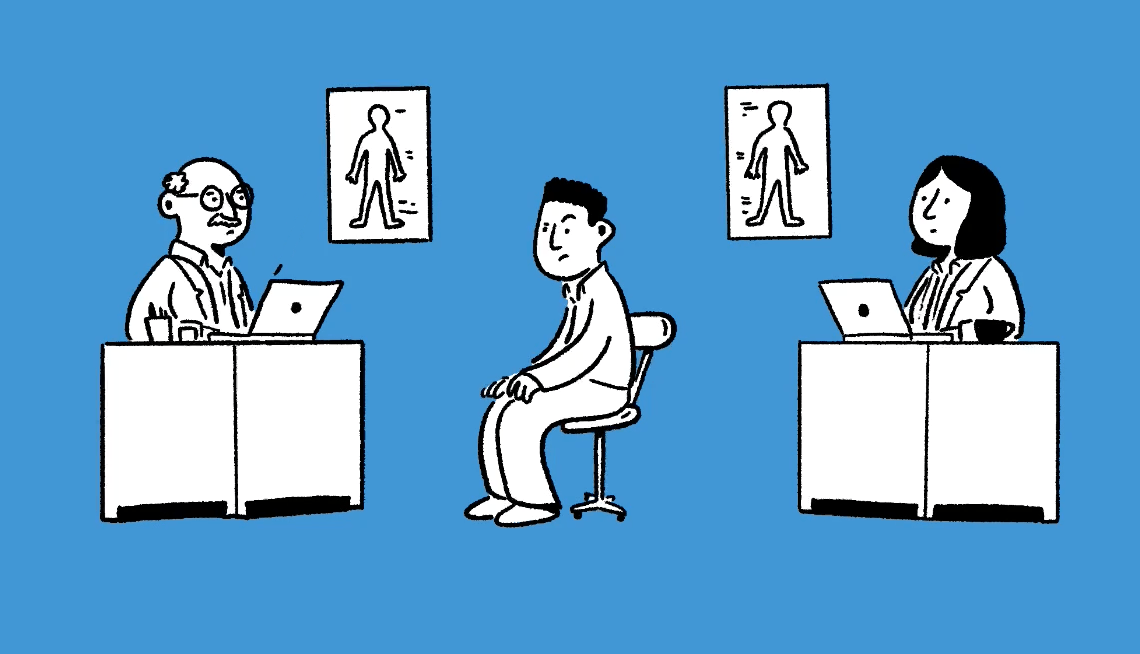AARP Hearing Center


What’s the best way to get a second opinion if you’re not sure about a diagnosis?
Even if you have confidence in your primary care doctor, there are times when it’s appropriate to reach out for a second opinion. Maybe your present treatment isn’t working. Perhaps there’s more than one possible diagnosis. You could have several treatment options, such as surgery versus medical therapy, and you need help deciding. Sometimes patients have a serious or rare condition and want an expert who specializes in their illness. Multiple conditions can also have the same symptoms, so diagnosing a complicated illness can be like trying to solve a mystery.
Whatever the reason for seeking a second opinion, I want to make two important points. First, no doctor should be upset if you ask for another viewpoint. This is your body, and you want to be sure that you’re finding the right medical team for your situation.
Secondly, if you have a good relationship with your primary care physician, you’ll want to keep that doctor in the loop. I tell my patients to think of me as their personal quarterback. I’m the team player who initiates the action and helps to lead the offense, coordinating communications among one or more specialists, depending on the situation.
For instance, I recently diagnosed a patient with lymphoma, a type of blood cancer. I called an oncologist I’ve worked with before and introduced my patient. But when she saw this specialist, she didn’t connect with him.


Ask Dr. Adam
Adam B. Rosenbluth, M.D., is an internist and cardiologist in New York City. Each Monday, he’ll weigh in on your questions about how to make your body work better for you. His AARP book will be published in 2027. Join in on the conversation on social media @dradamrosenbluth to learn to move the needle on your personal health in an achievable way.
I was glad that my patient let me know. Now I can suggest a different oncologist or she can find her own by asking for a recommendation from friends or family. She can also use a verified online resource such as her insurance company’s list of approved healthcare professionals. Whichever way she chooses to go, I’d like to be kept in the circle and know who she is seeing, so I can continue to provide primary care support, as I truly believe that we’re in this together for the long term.
Although you can get a second opinion any time, the earlier you have one, the better. You don’t want to wait to get the treatment you need. I’ve read several studies over the years showing that another medical opinion is helpful to confirm, refine or even change an initial diagnosis. One study, for example, found that 21 percent of patients who sought a second opinion at the Mayo Clinic left with a new diagnoses and 66 percent received a refined diagnoses.





































































You Might Also Like
Help! My Doctor Won’t Listen to Me
Adam Rosenbluth, M.D., gives advice for getting your physician to really pay attention to you25 Great Ways to Curb Sugar Cravings
Simple tips for cutting back on the sweet stuffCan You Say No to Being Weighed at the Doctor’s Office?
What to do if you dread the scaleRecommended for You